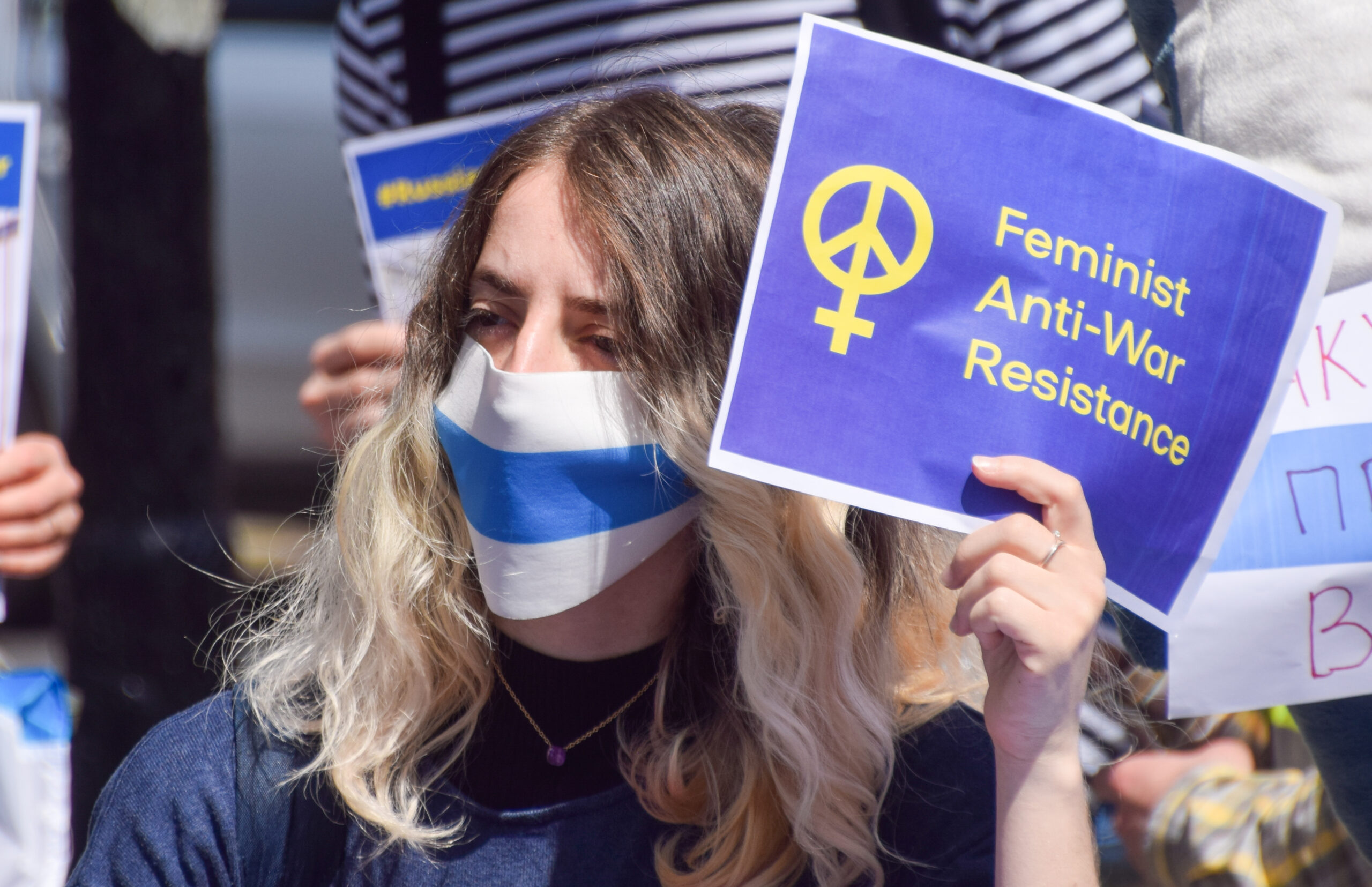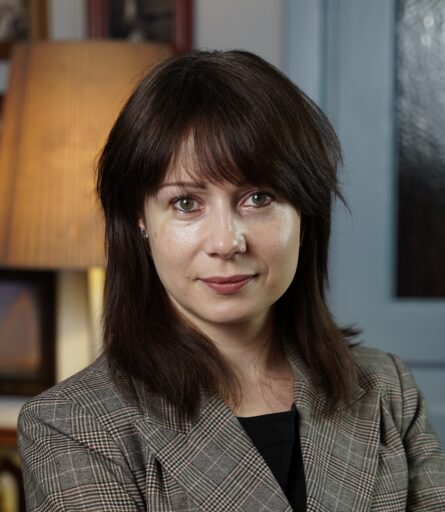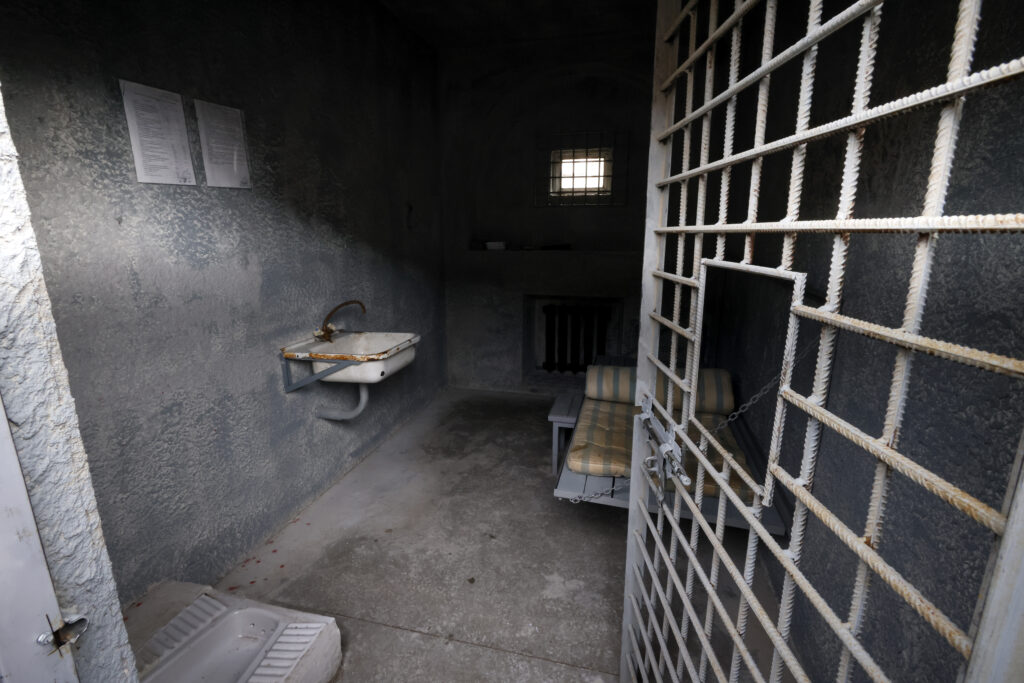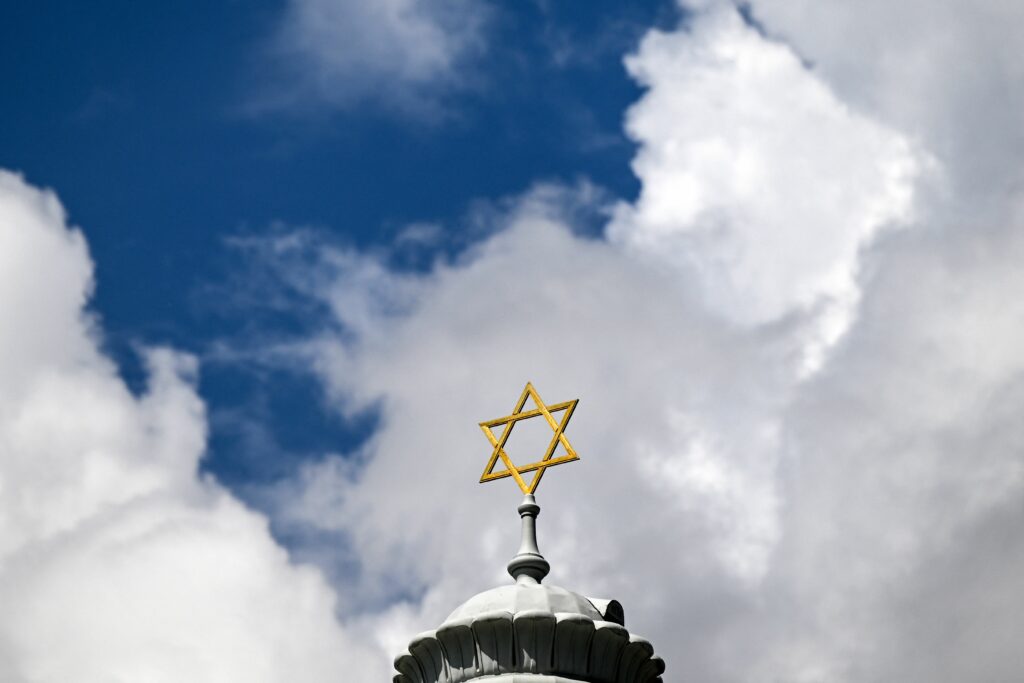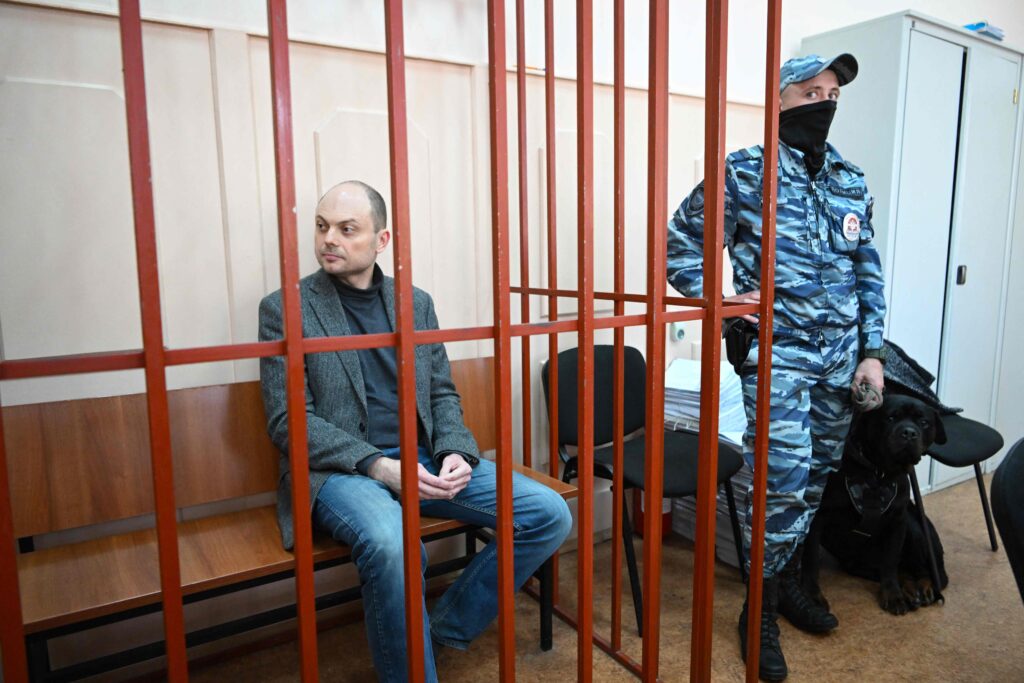Russia will remain an aggressive, revanchist state as long as it remains authoritarian. Its political culture, which is based on the idea of hegemonic masculinity, not only leads to oppression at home, but also aggression abroad. Feminist politics could break the patriarchal paradigm that keeps the country on an authoritarian path.
Aggressive war as a product of Russian patriarchal culture
The war against Ukraine is the most brutal emblem of a patriarchal culture of violence that permeates the Russian political system. Physical, psychological and symbolic violence is part of the so-called traditional system of values and gender roles that the state apparatus and the Orthodox Church actively promote — both in domestic and foreign policy. The militant conservative «patriotism» is extolled by top-level officials, as well as enshrined in education programmes, historical propaganda, and popular culture. The «patriotic» content, protected by the ever harsher censorship, boils down to the cult of strongman rule, wars and territorial conquests, hatred towards enemies, and the romanticization of criminal «moral» codes. At the same time, the Orthodox Church has sacralized the aggressive war against Ukraine and lobbies against legal measures targeting the widespread domestic violence.
The systemic, state-sponsored violence and tolerance thereof «trickles down» into society. People who suffer from an agonising sense of injustice and lawlessness in their relationships with state agencies and — more importantly — recognise that this injustice cannot be remedied, often take out their frustration on others. These may be vulnerable groups (women, children, subordinates, patients in psychiatric hospitals) or people whom the state vilifies as «enemies of the nation». In addition, historical propaganda, great power rhetoric and geopolitical revanchism have for decades compensated for the Russians’ lack of political agency, worsening economic difficulties and lack of future prospects.
Russia’s political culture feeds on systemic inequalities, oppression and the cult of hegemonic masculinity, which often turns into a cult of militarism. It is based on strict hierarchy, control from above and legitimization through force. Aggressiveness, rivalry and dominance are valued and usually combined with xenophobia, chauvinism, misogyny and homophobia. Furthermore, the way in which the ruling elite conducts politics largely corresponds to the leadership model that prevails in the criminal world. It is based on intimidation, demonstrations of strength, contempt for the weak and a willingness to take revenge for real or perceived insults. This political culture prepared the Russian population for war, enabled the rapid suppression of any major anti-war resistance, and normalised war as a natural condition of state and society.
Under Putin’s regime, war is not only a product of patriarchy, but also a pretext to legitimise the increasing oppression in the country. The severely restricted access to resources, the mass violation of citizens’ rights and freedoms and stripping them of their political agency and representation are intended to guarantee that the current leadership remains in power for life.
Putin’s neo-totalitarian project
The Kremlin is pursuing the neo-totalitarian goal of deepening the atomization of society and turning it into a homogeneous mass that declaratively rallies around the head of state. It regards civil society and other unauthorised horizontal ties based on trust and grassroots cooperation as a political threat. To make people compliant, the authorities resort to massive interference in citizens’ private lives, censorship, propaganda and indoctrination (via the media and the education system), encourage Russians to denounce their fellow citizens for «unorthodox» political views and portray Russia as a «besieged fortress». The lack of confrontation with the totalitarian and imperial past has made it possible to whitewash and then glorify the Soviet apparatus of political terror, while suppressing the memory of its victims, and extol strong, even ruthless rulers as the unifying force of the nation.
Within this model of domination, women are objectified and expected to merely conform to «patriotic femininity», their main function being to produce cannon fodder for future wars. The promotion of gender rights is presented by the Kremlin as hostile to Russian civilization — a tool of anti-Russian cognitive warfare sponsored by the West. In 2023, the government ramped up its efforts to seriously restrict women’s reproductive rights, leading to the ban on «childfree ideology» and restricted access to abortions. In the name of fighting the moral decay of the West and «Satanism», the LGBT+ communities were outlawed as extremist (interestingly, the Supreme Court also designated the feminization of language as one of the «extremist» characteristics).
In this highly ideologized political environment, sexism goes hand in hand with «internal colonialism». Formally a federation, Russia is in reality a highly centralised state in which the needs and interests of regions and local communities are disregarded, their resources are plundered and discrimination against non-Russian ethno-national groups is systemic. Russian citizenship (российскость) is often equated with belonging to the Russian ethnos and culture (русскость), while non-Russians make up at least 20 per cent of the population. The languages of ethnic and national minorities are downgraded in the education system, while their cultural heritage is either ignored, turned into superficial folklore, or suppressed. Ultimately, the Kremlin replaces the historical memories of these groups (often associated with mass terror and genocide orchestrated by Moscow) with a distorted narrative of the «peaceful Russian empire». In this context, the erasure of the identity of ethno-national minorities has much in common with the officially declared goal to «de-Ukrainize» Ukraine. Political, gender, linguistic and cultural diversity is presented as a threat to the unity of the nation and national security interests. In mid-2024, the non-existent «Anti-Russian Separatist Movement» was banned as extremist in order to facilitate repression against anti-colonial and indigenous activists.
The Kremlin’s foreign policy is also tainted with sexism and neo-colonialism: Russia’s war against Ukraine and hybrid warfare against the West have a very strong gendered dimension. State propaganda portrays Putin as an alpha male contrasted with «effeminate» Western leaders (with Western democratic culture explicitly described as «gay», as in the catchword «Gayropa») and «weak» women (with Kamala Harris being one of many victims of the sexist propaganda narratives). Obsessed with the idea of subjugating Ukraine like an unfaithful mistress, Putin appeared to be quoting an obscene song lyric in February 2022 to illustrate his idea of relations between the two countries, which directly implied rape and necrophilia. This obsession has found its parallel in the sexual crimes committed on a large scale by the Russian army against Ukrainian civilians and soldiers, both women and men. According to experts, these crimes are of systemic character and, in some instances, were either encouraged or ordered by military commanders as a tool of psychological warfare.
The social crisis in Russia and its gender-specific dimension
Since the beginning of the full-scale invasion in February 2022, Russian women have organised grassroots protests against the war and military mobilisation under an extremely repressive regime. Examples thereof include the anti-war protests organised by the Feminist Anti-War Resistance (FAS), the feminist movement «Soft Power», women’s actions in Dagestan and other regions against the military mobilisation, and the «Way Home» initiative. However, at the same time both men and women are responsible for educating young people in the culture of «genuine masculinity».
Russia’s war against Ukraine exacerbates the already existing social grievances that affect women in particular. The state-sponsored cult of violence has brought about a deep social crisis that has several key aspects.
Firstly, under the conditions of war, the traditional contempt for the value of human life has developed into an open cult of death propagated by the state apparatus. Death in the neo-imperial war is presented as a desirable alternative to a poor and meaningless life. Killing and dying have become a business. The authorities successfully buy cannon fodder on the «free market» owing to widespread poverty- a long-standing tool of state management. The pursuit of generous salaries and compensation for battlefield wounds or deaths takes precedence over the instinct to save lives and avoid recruitment. Before the war, 38% of children grew up in single-parent families (over 80% of them were raised by single mothers). Now this proportion will continue to rise.
Secondly, the period of war is characterised by an increase in alcohol and drug consumption and a rapid increase in war-related crime and violence at home. This includes a rise in serious crimes, illegal arms trafficking, domestic violence and crimes committed by soldiers returning from the war, many of whom were in prison before being sent to the front. The authorities have also introduced the cult of fallen criminals as national heroes who have «redeemed their guilt» by shedding blood in the fight against so-called Ukrainian Nazism. The victims of their past and new crimes have no say in this «redemption» process.
Thirdly, the widespread war-related mental health issues affecting many soldiers, their families and a part of the general public is likely to contribute to ever higher levels of everyday violence in the years to come. Instead of offering professional treatment to those traumatised, the Russian authorities issue guides for women on how not to provoke male aggression. Moreover, symbolic aggression against «enemies», «traitors», «fifth column» and «foreign agents» will provide fertile ground for further social degradation. This legacy of war is likely to linger for decades to come.
Feminist agenda as a countermeasure against Putinism
The twenty-first century shows that «misogyny and authoritarianism are mutually reinforcing ills». The traits associated with traditional masculine roles are at the same time characteristics of aggressive authoritarian systems. Authoritarian leaders «use gender to discredit one political order and affirm another».
Equal rights for women and other vulnerable groups directly relate not only to the sphere of ‘soft’ politics (social policy, public services, social justice), but to ‘hard’ international security. They impact the reliability and predictability of states, decisions to use force in international relations, and the building of societies’ resilience against militaristic and revanchist slogans.
More than a dozen countries, including Sweden, Germany, Canada, Mexico and Chile, have recognised the link between gender equality and security and have so far officially committed to a feminist foreign policy (FFP). This concept states that sustainable peace, security and development cannot be achieved if women, who make up half of the world’s population, are excluded. It aims to reduce tensions and resolve conflicts in international relations by promoting gender equality, adequate representation in decision-making processes at all levels and equal access to resources for women and other vulnerable groups. Traditional power politics is countered by a focus on underrepresented narratives, the security needs of the marginalised and confidence-building measures.
Feminist politics aims to break down colonial, racist and patriarchal power structures. It calls for a shift from hierarchical power to horizontal networks, from confrontation and subjugation to cooperation (a win-win paradigm instead of a zero-sum game), from centralised politics to local perspectives and self-governance, from polarisation and atomization to inclusion.
One of the most important principles is the inclusion of women in peace negotiations — their presence ensures that security concerns are considered more holistically. Their participation increases the likelihood of peace agreements lasting 15 years or longer by 35 percent.
However, feminism is not synonymous with pacifism, as FFP’s German concept states: «In the face of brutal violence, human life must be protected by military means too». Feminist voices that are calling for «demilitarisation» of the West’s policy vis-a-vis Russia’s war, at the expense of Ukraine’s sovereignty or territorial integrity, contradict the feminist agenda in at least two aspects. Firstly, they ignore the terrible fate of the people remaining under Russian occupation, and secondly, they deny the Ukrainian nation its agency, dignity and free choice to fight for freedom.
In Russia, the correspondence between women’s rights and human rights is clear. Officially promoted gender roles, norms and relationships, defined mainly by the submissiveness and passivity of women, reflect Kremlin-desired relations between state and society, where all citizens are submissive to the government.
Any sustainable political change in Russia must be based on gender equality. The inclusion and fair representation of gender groups in decision-making and the formation of political narratives across the country would reduce domestic political tensions, empower citizens and neutralise the compensatory function of imperial resentment in foreign policy. The fight against sexual violence and other types of violence, education free from indoctrination and militaristic propaganda, and economic emancipation from the oppressive policies of the corrupt state — would serve both women and society as a whole.
As utopian as it may seem in the third decade of Putin’s rule, the feminist agenda can provide an inspiring intellectual framework to address and mitigate Russia’s violent political and strategic culture in the long term — provided that the change of leadership in Russia creates a safe space for the implementation of its principles.
This vision of political change is much more comprehensive and far-reaching than the «classical» idea of political liberalisation advocated by Russian democratic politicians. Debates taking place among Russian political exiles provide an interesting case study of how the gender discourse is evolving. While the elder generation of politicians usually disregards the problem of women’s rights (together with the LGBTQ and national minorities’ rights), the young generation of female and male politicians, journalists and civic activists tend to pay much greater attention to feminism and related issues. It is reflected, among other things, by a fair representation of women at public events and in decision making. These people are also more eager to discuss the problem of Russian militarism and imperialism. Therefore, the emigrés can form a «laboratory» of future political solutions for Russia, provided they continue to maintain contacts with their counterparts inside Russia. The latter cannot discuss these topics publicly, but they can impact women and a broader public on the ground (as the FAS is trying to do), promoting the idea of a more just society — at least, as long as they can find legal ways to do it. Given the highly repressive nature ot Putin’s regime and the widespread culture of toxic masculinity, it needs to be a carefully planned, long-term strategy of micro-steps.
Talking about «democracy» without respecting women’s rights is an oxymoron. Without a special focus on the rights and needs of marginalised groups, including the female majority of the population (53% as of 2021), the tide of possible future democratisation will again only lift too few boats.
